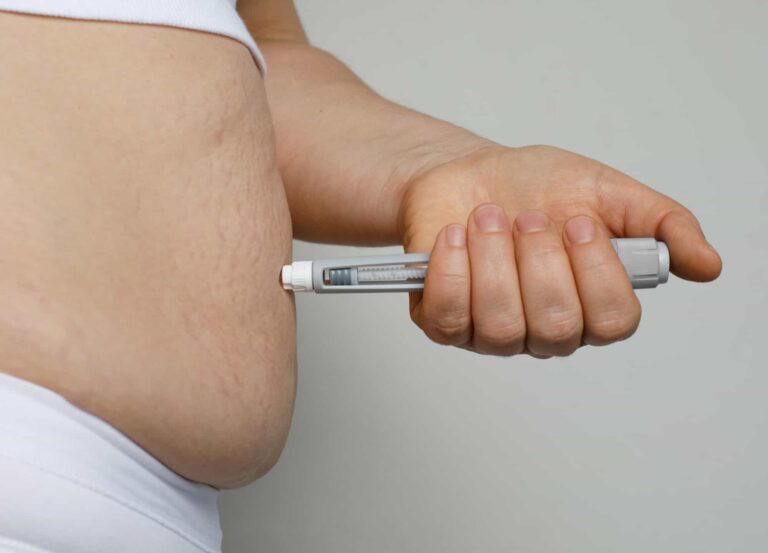If you’re thinking about breast implants, chances are you’ve been doing your research. Whether it’s talking to a board-certified plastic surgeon or reading safety guides, there’s no shortage of information available. After all, as Dr. Stanley Okoro, a board-certified plastic surgeon in Marietta, Georgia, notes, “Few medical devices have been studied by the FDA more than breast implants—over 60 years of research [has gone into them].”
But there are always new studies and ongoing research as the technology develops. One recent example: New FDA guidelines, released in 2019 in response to an association between highly textured implants and a rare cancer called breast implant–associated anaplastic large-cell lymphoma (BIA-ALCL). Since that time, highly textured implants have been largely phased out by plastic surgeons, in favor of smooth silicone implants with safer track records, like Mentor® MemoryGel® breast implants.
With that in mind, we spoke to Dr. Okoro and Dr. Armando Soto, a board-certified plastic in Orlando, Florida, about the most common safety concerns patients have and what you need to know about them.
Breast implant ruptures
One of the most important things people need to remember is that breast implants are not lifetime devices. Like all man-made devices, explains Dr. Soto, they have a finite life span and may rupture over time. And while that sounds concerning, both doctors note that in the majority of cases, rupture is not a likely health danger. Dr. Okoro says, “Most of the silicone implants are gel-sealed, so it’s not free-flowing fluid.” This means that when a leak occurs, “it tends to stay contained in the surgical capsule or within the implant pocket.” He also explains that in general, ruptures will not cause health issues because silicone itself is known to be an inert substance, meaning that it is unlikely to create a reaction from your body. (Though it’s worth noting that we don’t yet have the complete science on how different women’s bodies will respond.)
As for how long implants will last before they need to be removed or replaced, both doctors say there’s no hard deadline and that it can be 10 years or more, depending on the patient’s body, the placement, and the size and brand of implant chosen. “As an experienced breast surgeon, I believe that the Mentor® MemoryGel® implants are the best breast implants in the world, and they are manufactured in the United States. I believe the quality control is a bit better,” says Dr. Soto. While all implants may eventually rupture over time, he believes, based on his experience, that Mentor® MemoryGel® implants “have the best chance of avoiding it for the longest period of time.”
While prevention isn’t necessarily possible, there are things you can do, to make sure you detect potential implant issues early. The most important is regular annual check-ins with your surgeon. At these appointments, your doctor will perform a physical exam, to inspect the implant, and, ideally, an ultrasound or MRI (magnetic resonance imaging). The FDA recommends that all patients who have silicone implants get MRIs, five to six years post-surgery and every two to three years subsequently, to check implant stability, since in most cases, physical examinations won’t show evidence of rupture (and mammography can cause implants to rupture). However, MRIs are not covered by insurance and can be financially unrealistic for the majority of patients. That said, if you are able, it is a good idea to follow the FDA recommended schedule during the lifetime of your implants, to get the best idea of their condition.
Another important factor to consider when you’re choosing implants is whether they come with a warranty. Mentor®, for instance, offers lifetime product replacement should a confirmed rupture or deflation occur. Adds Dr. Okoro, “[The company] also offers additional coverage [within 10 years of surgery] that can be put toward helping the patient pay for replacement surgical fees.”
BIA-ALCL
A form of rare non-Hodgkin’s lymphoma found in the scar tissue and fluid surrounding an implant, this breast implant–associated lymphoma is an uncommon but sometimes fatal complication linked to both textured silicone and saline implants. While little is known about exactly what the cause is, “We believe it is the surface of the implant shell that brings the risk of BIA-ALCL for the patient,” says Dr. Soto. For that reason, highly textured implants have been mostly phased out, in favor of smooth implants, including Mentor® MemoryGel® breast implants.
“There have been a few patients around the world who have smooth implants now who have developed BIA-ALCL, but they were found to have previously had textured implants. To our knowledge, there have been no recorded cases of women who have had only smooth-shelled implants developing BIA-ALCL,” says Dr. Soto. “The way I explain it to my patients is, it’s important that you understand that this exists, but at this moment in time, because we use a smooth-surface implant, we do not believe that there is a significant risk to you.”
Capsular contracture
An abnormal tightening of the membrane of scar tissue that naturally forms around all breast implants (commonly referred to by surgeons as the capsule), capsular contracture causes the breasts to feel sore and stiff and look asymmetrical or unnaturally shaped. It is one of the most common complications of breast augmentation surgery—and while it is not dangerous to a patient’s overall health, it’s an unwelcome and sometimes painful outcome.
According to both doctors, researchers aren’t exactly sure why it happens but say that it is multifactorial, meaning they can’t definitively point to one thing that causes it. There has been some data to suggest that it is more common after revision surgery and in women who have their implants placed over the muscle instead of under the muscle or fascia.
Dr. Okoro notes that over the past few years, doctors have learned a few techniques that have helped reduce instances of capsular contracture. “During the procedure, we use a triple antibiotic solution,” he says, due, in part, to surgeons’ belief that bacterial contamination during surgery can play a role in capsular contracture. The second technique is a postoperative massage regimen, performed daily by the patient, to help prevent membrane tightening.
“Capsular contracture is easier to prevent, but if you do have it, it’s not a permanent condition,” says Dr. Okoro. “It’s highly treatable and easy for a board-certified surgeon to fix.”
Revision and replacement surgery
When the time comes to have your breast implants removed, if you decide to have them replaced (or if you are in the small percentage in need of a revision to correct appearance issues like wrinkling, placement, or capsular contraction), you may have some questions about the safety of a repeat surgery. As both doctors point out, there are always risks with any surgery that involves general anesthesia; for the most part, however, complications are rare in healthy patients who do not have comorbidities like heart disease, obesity, high blood pressure, diabetes, or sleep apnea.
“There’s not an additional risk of life and limb to the patient from [revision or replacement surgery],” explains Dr. Soto, “but it will marginally increase the risk of capsular contracture.” Because of that—and to keep yourself safe from rare surgery complications—it’s important to follow your surgeon’s post-op care instructions, including medication, massage, and how long to avoid drinking alcohol and other activities that could potentially cause abnormal bleeding or scar formation.
You may also have heard the term breast implant illness (BII). While BII is not a medically recognized disease (doctors and researchers don’t yet have the evidence to prove or disprove its existence), some women say they have experienced autoimmune symptoms after getting implants and have seen their symptoms improve after removal. If you or your family have a history of severe allergies or autoimmune disorders, talk with your surgeon about whether breast implants are right for you.
Thanks to decades of research and regulation, breast implant surgery is one of the safest cosmetic procedures performed in the U.S. Bring up any safety concerns you might have with your doctor, read our complete guide to breast implant safety, and always be sure to have your breast augmentation done by a board-certified plastic surgeon, in an accredited surgical center.











